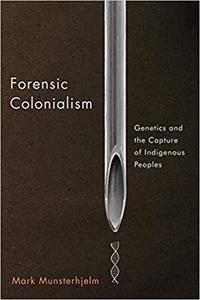
Free Download Forensic Colonialism
by Munsterhjelm, Mark;
English | 2023 | ISBN: 0228016894 | 433 pages | True PDF | 10.05 MB
Forensic genetic technologies are popularly conceptualized and revered as important tools of justice. The research and development of these technologies, however, has been accomplished through the capture of various Indigenous Peoples' genetic material and a subsequent ongoing genetic servitude. In Forensic Colonialism Mark Munsterhjelm explores how controversial studies of Indigenous Peoples have been used to develop racializing forensic technologies. Making moral and political claims about defending the public from criminals and terrorists, international networks of scientists, police, and security agencies have developed forensic genetic technologies firmly embedded in hierarchies that target and exploit many Indigenous Peoples without their consent. Collections began under the guise of the highly controversial Human Genome Diversity Project and related efforts, including the 1987 sampling of Brazilian Indigenous Peoples as they recovered from near genocide. After 9/11, War on Terror rhetoric began to be used to justify research on ancestry estimation and physical appearance (phenotyping) markers, and since 2019, international research cooperation networks' use of genetic data from thousands of Uyghurs and other Indigenous Peoples from Xinjiang and Tibet has contributed to a series of controversies. Munsterhjelm concludes that technologies produced by forensic genetics advance the biopolitical security only of privileged populations, and that this depends on imposing race-based divisions between who lives and who dies.Meticulously researched, Forensic Colonialism adds to growing debates over racial categories, their roots in colonialism, and the political hierarchies inherent to forensic genetics.
Links are Interchangeable - Single Extraction
